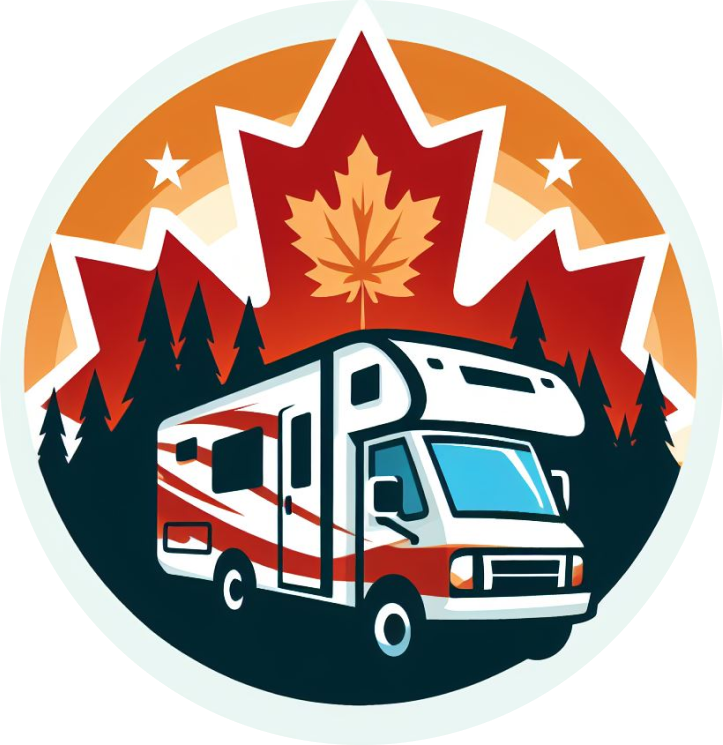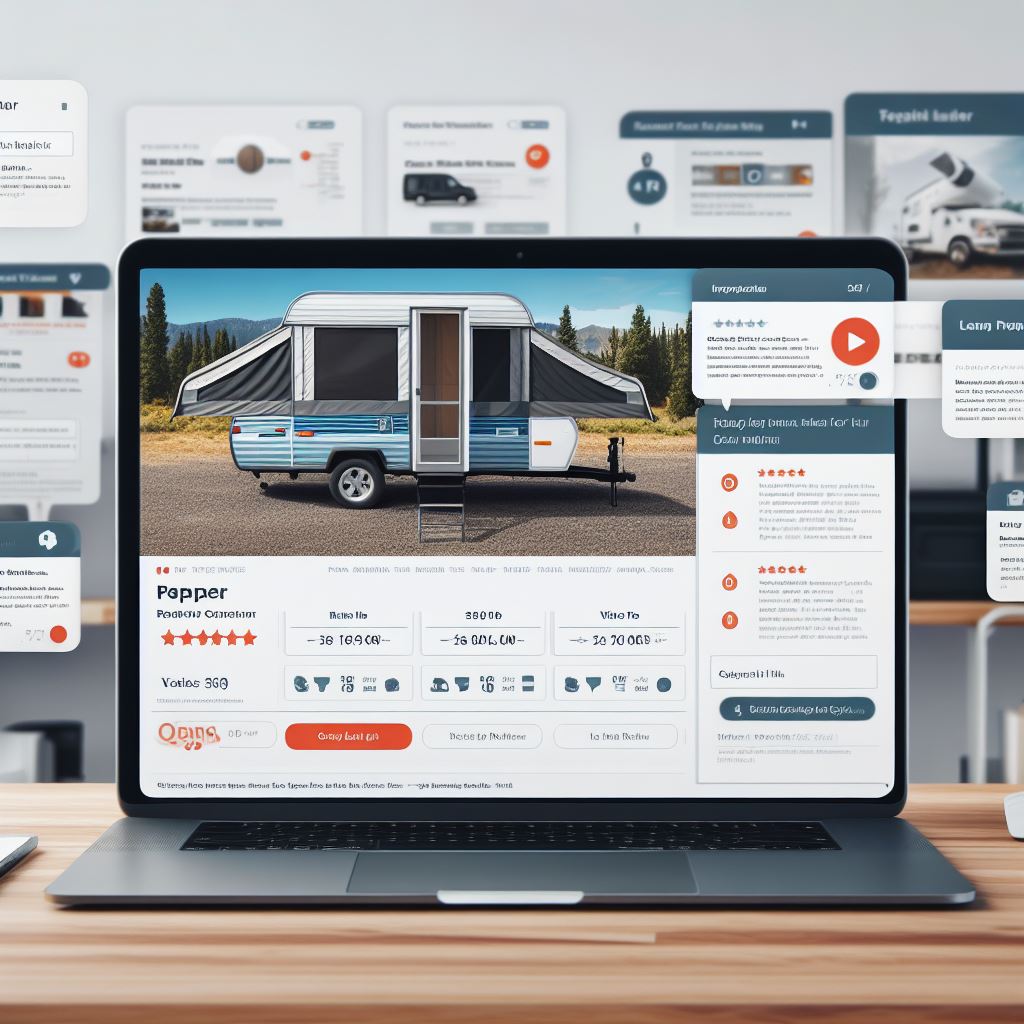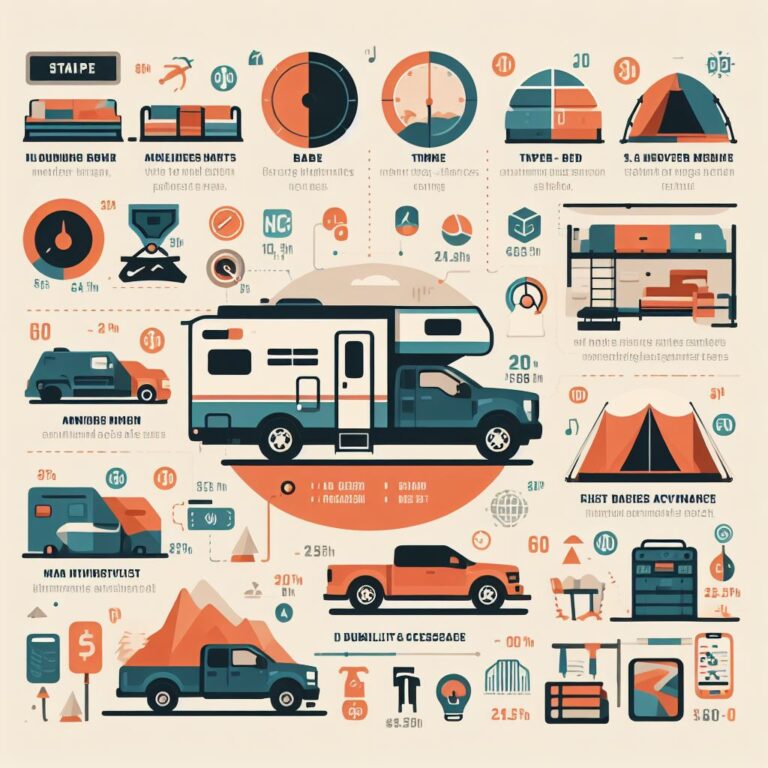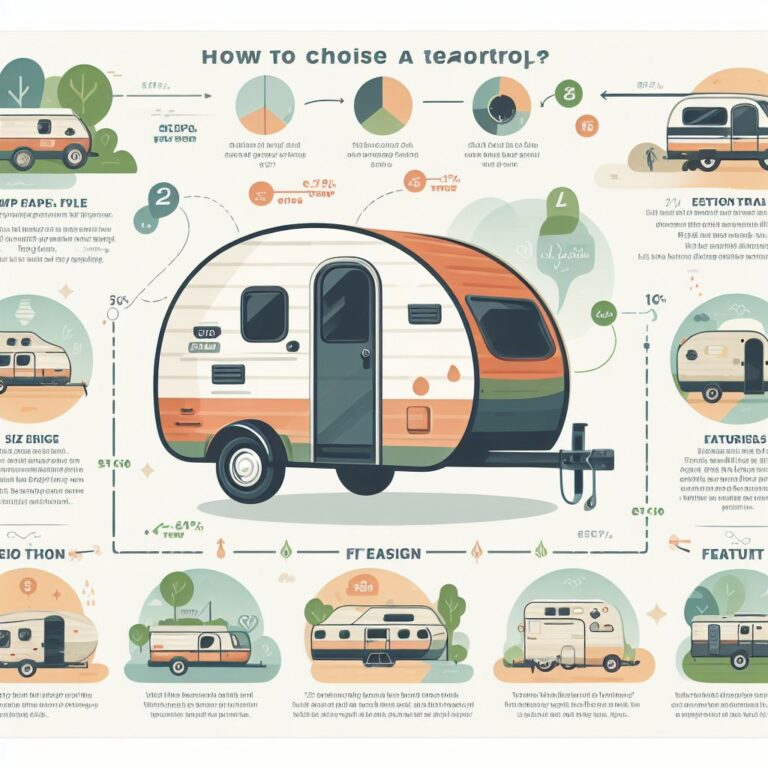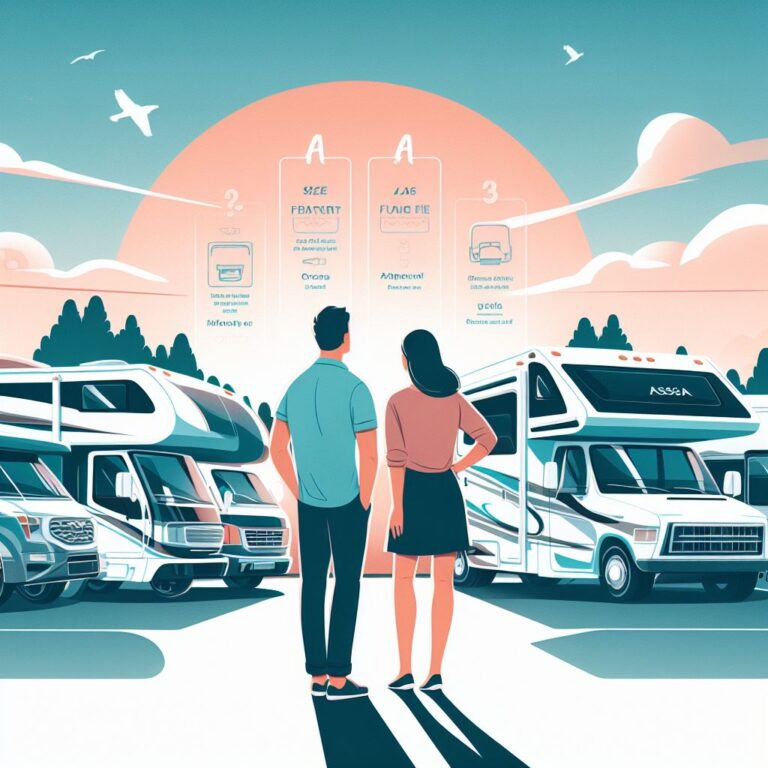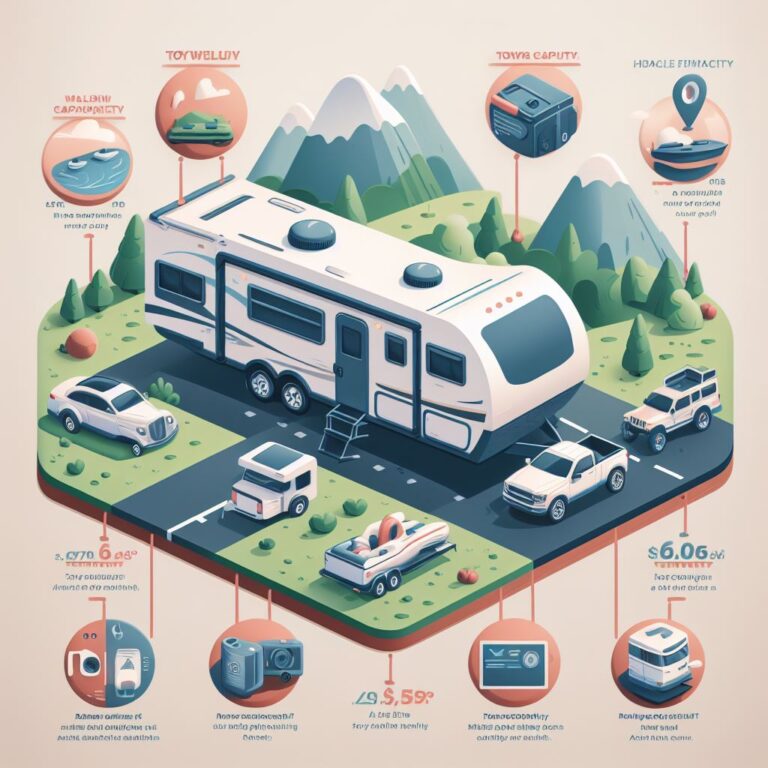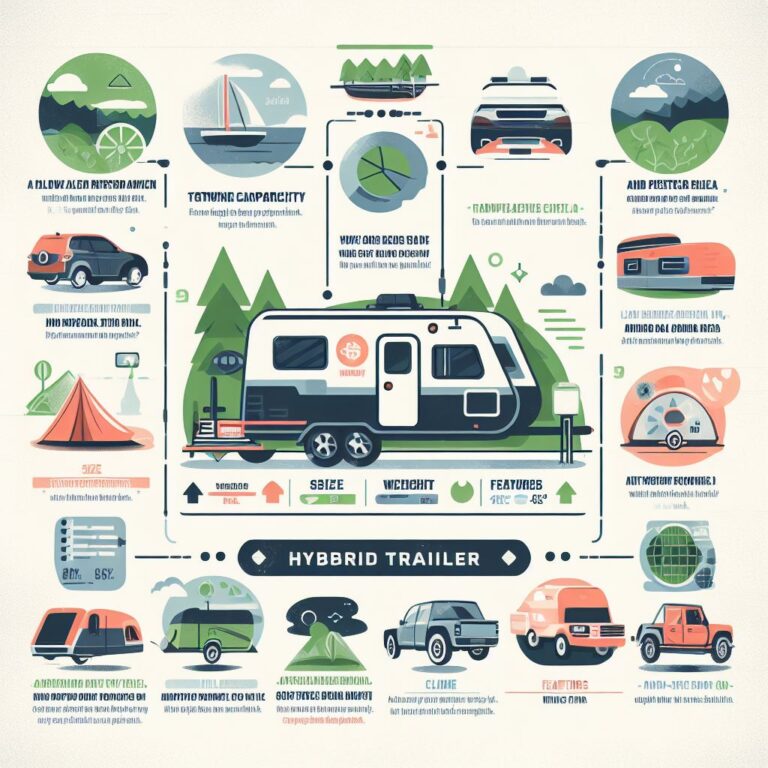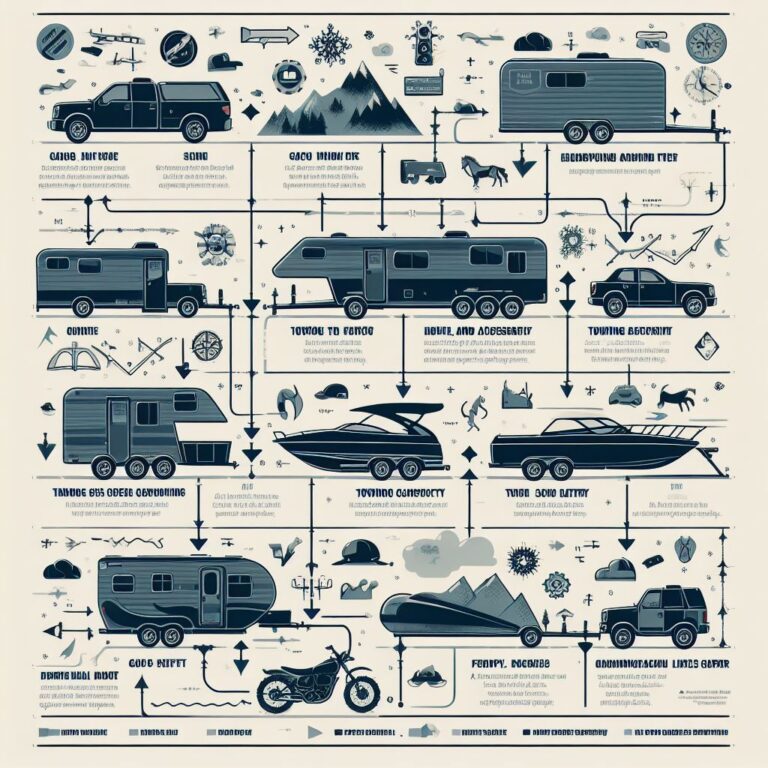How To Choose Pop-up Trailer $15,000 – $25,000 Sleeps up to 6 4.6 to7.0 M(15-23 FT)
Understanding Your Budget for a Camper
Purchasing a camper is a significant investment that requires meticulous planning and budgeting. It’s not just the upfront cost of the camper itself, there are also additional expenses that come with owning a recreational vehicle. This includes the ongoing costs of insurance, registration, fuel, maintenance and potential storage fees. Consequently, it’s essential to dive deep into your financial assessment before stepping foot into the market.
While budgeting for a camper, create a comprehensive list of all the possible costs in the equation. This should include your desired camper’s price, additional accessories, periodic maintenance, and unexpected repairs. Also, consider the costs associated with the destination like camping fees and utilities. It’s crucial to make an informed decision that aligns with your financial comfort zone. Remember, owning a camper should be about unforgettable adventures, not financial stress.
To make the process easier, here are some key points to consider when budgeting for a camper:
• First and foremost, determine the price range of your desired camper. This will be your most significant expense. The cost can vary significantly depending on factors such as size, brand, age and features.
• Make an estimation of additional accessories that you might need or want in your camper like solar panels, bike racks or awnings. These extras add up quickly so it’s essential to account for them in your budget.
• Consider ongoing costs such as insurance and registration fees. Insurance rates can differ based on factors like where you live and how often you plan to use the camper while registration fees may depend on the weight and type of vehicle.
• Fuel is another recurring expense that needs consideration. Calculate an estimate based on how much travelling you plan to do with the camper.
• Maintenance should also be factored into your budget. Regular servicing helps keep everything running smoothly but there could also be unexpected repair costs along the way.
• If you don’t have space at home for storage when not using it, remember potential storage fees which can vary from place to place.
• Lastly, don’t forget about camping site fees if planning regular trips out with utilities included like electricity hook-ups or water supply charges at campgrounds
By understanding all these expenses associated with owning a camper before making a purchase decision, one can avoid unforeseen financial stress later down the line ensuring that every trip made is truly enjoyable without any worries.
Evaluating Camper Size and Length
Occupying an unruly space in your heart is often the desire to eschew the monotonous routine and dart towards the tranquil embrace of nature. Purchasing a camper that corresponds to your travel needs embellishes this experience, making the journey as enjoyable as the destination. Among the primary factors warranting consideration is the size and length of the camper, which directly influences ease of mobility, storage capacity, suitability to your travel lifestyle, and compatibility with your towing vehicle.
Small travel trailers, known for their compact and economical design, allow for easy navigation through highways and in-town streets. They are especially suitable for solo travelers or couples, offering all the essentials without the bulk. Mid-size to large travel trailers, on the other hand, provide more living space, storage, and additional amenities like full-sized refrigerators or separate sleeping areas. These are generally more suited to families or group travels. While the appeal of extra space is undeniable, it’s important to remember that size is not synonymous with comfort. The ideal camper must strike a balance between practicality and luxury.
• First and foremost, evaluate your travel lifestyle. If you’re a solo traveler or part of a couple who enjoys frequent weekend getaways, small travel trailers may be the best fit for you. These are often easier to maneuver through city streets and tight camping spots, making them ideal for spontaneous trips.
• Consider the towing capacity of your vehicle. While larger campers offer more amenities and space, they also require a stronger towing vehicle. It’s essential to ensure that your car is capable of safely towing the camper before making a purchase.
• Take into account storage needs. Larger campers typically have more built-in storage options such as closets, cabinets, and under-bed compartments. However, keep in mind that every item adds weight which can impact fuel efficiency.
• Think about comfort versus practicality: A smaller camper might provide fewer amenities but could potentially offer greater ease when it comes to parking or fitting into tighter campsites.
• Look at long-term maintenance: Larger RVs with more features might require more upkeep than their smaller counterparts.
In conclusion, choosing the right size and length for your camper requires careful consideration of various factors including lifestyle preferences, vehicle capabilities and personal comfort levels among others. With these points in mind, one can make an informed decision ensuring enjoyable travels ahead.
Considering the Sleeping Capacity
When deciding on the perfect camper, one important aspect is the sleeping capacity it provides. The ideal number of people that can comfortably sleep in a camper depends on the size and layout of the camper. It varies widely from two to ten people. Most small campers or pop-up trailers will provide sleeping areas for 2-4 people, while larger trailers and motorhomes can comfortably sleep six to eight, or even ten in some exclusive models. Keep in mind the needs of your family or travel group.
The layout of the sleeping areas is equally as crucial as the number of beds. Campers offer various sleeping arrangements: from separate bedrooms, overhead bunk beds, to convertible dinettes that transform into bed spaces. Solo campers or couples might suffice with a double bed, but for a large family, there are campers with separate quarters, providing a semblance of privacy. Don’t forget about the storage for clothes and personal items in and around sleeping quarters. Adequate sleeping capacity with reasonable privacy and storage determines the comfort level of your camping experiences.
Here are the key points to consider when evaluating the sleeping capacity of a camper:
• The size and layout of the camper: These two factors primarily determine how many people can sleep comfortably in a camper. Small campers usually accommodate 2-4 people, while larger ones can sleep up to ten individuals.
• The needs of your travel group or family: Always keep these in mind when choosing a camper. If you’re traveling solo or as a couple, you might only need a double bed. However, if you have a large family, look for campers with separate quarters that provide some privacy.
• Various sleeping arrangements available: Campers offer different types of sleeping areas – from separate bedrooms and overhead bunk beds to convertible dinettes that transform into bed spaces. Choose what best suits your requirements.
• Storage space around sleeping quarters: This is often overlooked but is crucial for storing clothes and personal items during camping trips. Make sure there’s ample storage space near the sleeping areas.
In conclusion, considering all these aspects will help ensure that everyone on your camping trip has comfortable accommodations with enough privacy and storage space. Remember, adequate sleeping capacity significantly determines the comfort level of your camping experiences.
Insight into the World of Pop-Up Trailers
Pop-up campers offer unparalleled convenience and a unique charm. With their compact design, they are perfect for people who cherish simplicity and minimalism. They are easy to tow, even with medium-sized vehicles, and their aerodynamic design makes them fuel efficient for long-distance journeys. Unlike traditional trailers, pop-up campers involve a set-up time as they are folded down for travel and expanded once you reach your camping spot.
These campers possess an inherent versatility that allows them to adapt to a wide range of environments. For instance, they come equipped with appliances such as a kitchen, a dining area and even bathrooms in some higher-end models. And while they may not provide the same level of luxury and comfort as larger motorhomes or trailers, pop-ups make up for it with their ability to intimately connect campers to the great outdoors. The simplicity they offer makes camping less of stress with a major focus on the pure camping experience. A good pop-up camper can be your perfect outdoor partner, improving your camping experience in ways you may not have thought of.
Here are some key features and benefits of pop-up trailers:
• Compact Design: Pop-ups are designed to be small and compact, making them easy to tow with even medium-sized vehicles. This makes them a great choice for those who prefer simplicity and minimalism in their camping experience.
• Fuel Efficiency: Thanks to their aerodynamic design, pop-up campers tend to be more fuel-efficient than larger motorhomes or trailers. This can save you money on long-distance journeys.
• Versatility: Pop-up campers come equipped with various appliances such as a kitchen, dining area, and sometimes even bathrooms. They can adapt to a wide variety of environments, providing all the basic comforts you need while camping.
• Connection with Nature: Unlike larger motorhomes that may isolate you from your surroundings, pop-ups offer an intimate connection with the outdoors. The simple setup allows for less stress and more focus on enjoying the pure camping experience.
• Improved Camping Experience: A good pop-up camper can enhance your outdoor adventures in ways you may not have considered before. Whether it’s through convenience or added comfort, these campers can greatly improve your overall camping experience.
In conclusion, if you’re looking for a unique way to enjoy your next outdoor adventure without sacrificing too much comfort or convenience, consider investing in a pop-up trailer. These versatile little homes-on-wheels could turn out to be the perfect outdoor partner for all your future expeditions!
Factors to Consider When Selecting a Camper
One of the primary considerations in picking a camper is its overall length. This is a critical factor due to the potential challenges it may pose while navigating through tight spaces or difficult terrains. Shorter campers offer more mobility, enabling you to explore off-grid areas with greater ease. On the flip side, larger campers provide more living space and offer additional features, such as a kitchenette or separated sleeping zones, that can make your camping experience significantly more comfortable.
An equally important factor is the camper’s weight. This aspect should not be overlooked as it significantly impacts the towing capacity of your vehicle. The weight of the camper will affect fuel consumption as well as the wear and tear on your vehicle over time. Prioritize selecting a camper that has a Gross Vehicle Weight Rating (GVWR) that can be safely hauled by your vehicle. Evaluating these aspects meticulously will ultimately lead to a camper that best aligns with your camping visions and expectations.
Moreover, the camper’s layout and design are also crucial factors to consider. The arrangement of the interior should be practical and functional for your needs. Some campers come with built-in furniture or appliances, while others offer a blank canvas that allows you to customize the space according to your preferences. Additionally, check if there is adequate storage space available for all your camping essentials.
• The overall length of the camper:
– Shorter campers allow more mobility.
– Larger campers provide more living space and additional features.
• Weight of the camper:
– It impacts towing capacity.
– Affects fuel consumption and wear on vehicle over time.
• Layout & Design:
– Consider whether it suits your needs in terms of functionality.
– Check if there’s enough storage for camping essentials.
Another factor worth considering is insulation. If you plan on camping during colder months or in chilly regions, then opting for a well-insulated camper would be beneficial. This can help keep you warm inside despite freezing temperatures outside.
Lastly, cost is another significant consideration when choosing a camper. Your budget will dictate what kind of features and amenities you can afford in a camper. Remember that apart from purchasing costs, owning a camper also involves maintenance expenses as well as insurance premiums which need to be factored into your budgeting process.
• Insulation:
– Important if planning to camp during colder months or chilly regions
• Cost:
– Dictates what features & amenities one can afford
– Includes purchase cost plus ongoing maintenance expenses & insurance premiums
Understanding the Worth of Various Features
As you delve into the world of campers, the magnitude of choices may feel overwhelming. Every model offers a unique combination of features that directly influence the overall cost and value. Identifying which of these features are of significant importance to you is crucial in making an informed decision.
For instance, campers equipped with amenities like well-furnished kitchenettes, temperature control systems, or upgraded bedding can offer enhanced comfort, but might also add considerably to the overall price. Additional luxuries such as advanced entertainment systems may seem appealing, but it’s important to understand their incremental cost and evaluate whether you will frequently use these features. By understanding the value of various features, one can make a wise investment, staying within budget while also fitting personal needs and preferences.
To simplify the process, let’s break down some common features and their potential worth:
• Well-furnished kitchenettes: These can greatly enhance your camping experience by offering convenience and flexibility in meal preparation. However, they tend to increase the price of a camper significantly.
• Temperature control systems: If you plan on camping during extreme weather conditions, having a temperature control system might be crucial for comfort and safety. But again, this feature may add considerably to the overall cost.
• Upgraded bedding: A good night’s sleep is essential when camping. Upgraded bedding options provide increased comfort but could also inflate the price tag.
• Advanced entertainment systems: While these can make your trips more enjoyable especially during bad weather or downtime periods, they are often expensive additions. Consider how frequently you would use such a feature before deciding if it’s worth investing in.
In conclusion, understanding what each feature offers and weighing its importance against its cost is key in determining which camper is right for you. It’s important not only to consider what features will enhance your camping experience but also what fits within your budget constraints.
Benefits of Opting for a Mid-Range Camper
Selecting a mid-range camper can be beneficial for a number of reasons. Firstly, they offer the perfect balance between cost and features. Unlike budget campers, mid-range options come packed with more recreational equipment and accessories that enhance comfort and convenience during your camping trips. These might include modern kitchen appliances, spacious bathrooms, cozy living areas, and even entertainment systems.
Not only do mid-range campers provide upgraded features, they also promise greater durability and longevity. The construction and finishing of these units adhere to better quality standards, allowing them to handle more wear and tear and sustain challenging weather conditions. More so, with a mid-range camper, the need for frequent repairs and replacements may be reduced, saving you considerable costs and effort in the long run. It’s a worthwhile investment for Canadians seeking a reliable and fully-equipped home on the road.
Furthermore, mid-range campers are designed to offer a comfortable and home-like environment. They come with well-thought-out layouts that efficiently utilize the available space, providing ample room for storage and movement. Some models even feature slide-outs that can be extended when parked, offering additional living space. The interior design and decor of these campers are also more appealing compared to budget options.
• Mid-range campers strike an ideal balance between price and amenities.
◦ They include modern appliances like refrigerators, stoves, microwaves etc.
◦ Most have spacious bathrooms equipped with showers and toilets.
◦ Living areas in such campers are cozy and often come with entertainment systems.
• These units promise durability due to their superior construction quality.
◦ Their robust build allows them to withstand harsh weather conditions better than lower-end models.
◦ With a mid-range camper, you may not need frequent repairs or replacements which saves costs in the long run.
• Mid-range campers provide a homely atmosphere on wheels
◦ Efficient layout ensures maximum utilization of available space for storage as well as free movement inside the camper
◦ Many models feature extendable slide-outs that increase living area when parked
In conclusion, opting for a mid-range camper is an excellent choice if you want comfort coupled with reliability during your camping adventures without having to break the bank. While they might cost slightly more than budget-friendly options initially; their longevity, reduced maintenance needs, enhanced features make them worth every penny spent.
Maintenance and Upkeep of Your Camper
Maintenance is an integral part of owning a camper to ensure it remains in good condition and can extend its lifespan significantly. For instance, regular inspections should be conducted to check for any damages that may have occurred during your travels, such as leaks or broken parts. Many campers often overlook this aspect, leading to a minor issue deteriorating into a major one. Additionally, the electrical and plumbing systems should consistently be reviewed to ensure they are functioning optimally.
In terms of upkeep, it is about keeping the camper clean and protecting it from extreme weather conditions. Any residue or excessive dirt build-up can affect the camper’s exterior paint and cause corrosion over time. Thus, frequent cleaning inside out is necessary. During winter, your camper requires extra protection, as freezing temperature can lead to component damage. Consider winterizing procedures, like storing the camper indoors or using a cover to keep the camper free from the risk of frost and freezing. In short, a meticulous maintenance and upkeep regimen can lead to years of hassle-free camper experience.
Here are some key steps to consider in the maintenance and upkeep of your camper:
• Conduct regular inspections: This includes checking for any damages that may have been incurred during travels. Look out for leaks or broken parts, which if overlooked can lead to major issues.
• Review electrical and plumbing systems: These should consistently be reviewed to ensure they are functioning optimally. Any faults should be addressed immediately before they escalate into more serious problems.
• Clean regularly: Keeping the camper clean is vital not only for aesthetic purposes but also as a preventative measure against corrosion. Any residue or excessive dirt build-up can affect the camper’s exterior paint and cause it to corrode over time.
• Protect from extreme weather conditions: Your camper needs protection from harsh weather conditions such as freezing temperatures, which could potentially damage its components. Consider winterizing procedures like storing indoors or using a cover to safeguard it against frost and freezing.
In conclusion, maintaining your camper involves both routine checks of its physical condition as well as ensuring cleanliness inside out. It might seem like a daunting task but remember that this meticulous regimen will provide you with years of hassle-free camping experience.
The Impact of the Trailer’s Weight on Your Vehicle
Your vehicle’s performance is directly linked to the weight of the trailer it pulls, and nowhere is this more apparent than when driving a camper. Trailers add a significant burden to the towing vehicle, impacting fuel efficiency, acceleration, braking distance, and overall handling. These factors must be well understood to ensure a safe and comfortable journey.
When selecting a trailer, it is essential to take into account the towing capacity of your vehicle. This capacity is determined by your vehicle’s gross vehicle weight rating (GVWR), which can typically be found in the vehicle’s manual or on the manufacturer’s label. Exceeding the GVWR can place unnecessary stress on your vehicle’s structure and mechanical systems, leading to increased wear, potential breakage, and costly repairs. Moreover, it can also affect your insurance and may even lead to non-compliance with local traffic laws and regulations.
• The trailer’s weight can significantly impact your vehicle’s fuel efficiency. The heavier the trailer, the more energy is required to pull it, leading to increased fuel consumption. This can increase your travel costs and contribute to environmental pollution.
• Acceleration is another factor affected by the weight of a trailer. A heavy trailer requires more power from the engine for acceleration which could result in slower take-off speeds and difficulty maintaining speed on inclines.
• Braking distance also increases with a heavier load. The extra weight means that your vehicle will take longer to stop when braking, increasing the risk of accidents especially in emergency situations or poor weather conditions.
• Your vehicle’s overall handling may be compromised due to an overweight trailer. It can cause instability during turns or sudden maneuvers, making driving challenging and potentially dangerous.
• Exceeding GVWR not only affects your vehicle’s performance but also its structure and mechanical systems. Overloading puts immense stress on various components such as transmission system, suspension, brakes etc., resulting in premature wear and tear or even failure of these parts leading to expensive repair bills.
• Insurance issues may arise if you exceed your vehicle’s towing capacity as many insurance companies consider this a breach of policy terms. In case of an accident while pulling an overweight trailer, they might refuse coverage leaving you with significant out-of-pocket expenses.
• Lastly, overloading trailers beyond their rated capacity often violates local traffic laws & regulations which could lead into hefty fines or penalties including points against driver’s license.
Therefore it becomes crucial for every driver planning to tow a trailer; whether for recreational purposes like camping trips or commercial use; should understand these impacts thoroughly before hitting road ensuring safe journey without any unexpected surprises along way!
Real-Life Experiences and Reviews of Camper Owners
Sifting through the kaleidoscope of camper options can feel overwhelming for potential buyers. Even once they’ve narrowed down the price point, size, and desired features, many would-be campers are left wondering what it would actually be like to own and use a camper. To lift the fog of uncertainty, there’s no better resource than those who have already embarked on the camper life themselves. Veteran camper owners often share informative reviews and experiences that offer authentic glimpses into the joys and challenges of owning a camper.
From operating costs to the nuances of setting up a campsite, these first-hand accounts are chock full of the practical details that the glossy brochures often gloss over. Most camper owners speak enthusiastically about the freedom and flexibility their mobile homes offer, particularly in the context of road trips and spontaneous getaways. However, they also highlight practical aspects that potential buyers should consider such as the additional cost of fuel and the challenges of driving a heavy vehicle. These unbiased accounts can serve as a valuable touchstone for those considering a camper purchase, offering much-needed insight and a realistic perspective on what to expect.
• Many camper owners talk about the initial cost of purchasing a camper, which can be quite high. However, they also note that once you’ve made this investment, there are few ongoing costs beyond fuel and occasional maintenance.
• The freedom to travel at your own pace is one of the most frequently mentioned perks by camper owners. They love being able to explore new places without worrying about hotel bookings or rigid itineraries.
• Campers often highlight their ability to bring along all the comforts of home as another major advantage. From cooking their favorite meals in a fully equipped kitchenette to sleeping in comfortable beds, these amenities significantly enhance their traveling experience.
• On the flip side, some camper owners mention challenges related to driving and parking due to the size and weight of their mobile homes. These difficulties can be particularly pronounced for those who live in urban areas or have limited prior experience with large vehicles.
• Fuel efficiency is another common concern among camper owners. Given that campers tend not to be as fuel-efficient as smaller cars, potential buyers need to factor higher gas expenses into their budgets.
• A number of reviews point out that setting up and taking down campsites takes time and effort – especially for first-timers. Despite this learning curve, many find it becomes easier over time and even enjoyable part of camping life.
In conclusion, owning a camper comes with both joys and challenges according to real-life experiences shared by veteran users. Potential buyers should take these points into consideration alongside other factors such as price point and desired features when deciding whether or not a camper purchase aligns with their lifestyle needs.
What factors should I consider when setting a budget for a camper?
You should consider the price of the camper itself, potential financing options, the cost of insurance, fuel, and maintenance, as well as any accessories or upgrades you plan to make.
How can I determine the right size and length of a camper for me?
The right size and length of your camper would depend on your travel needs, the size of your family, the storage space you require, and the towing capacity of your vehicle.
Are there specific guidelines to consider regarding the sleeping capacity of a camper?
Yes, the sleeping capacity refers to the number of people a camper can comfortably sleep. If you have a large family or plan to travel with friends, you might need a camper with a higher sleeping capacity.
Are pop-up trailers a good option for camping?
Pop-up trailers can be a great option for camping, considering their affordability, portability, and ease of setup. However, they may lack certain amenities compared to other types of campers.
What features should I look out for when selecting a camper?
When selecting a camper, you should consider features such as kitchen facilities, bathroom facilities, storage capacity, bed size, and whether it has heating or air conditioning.
How do I determine the worth of various camper features?
The worth of a camper feature largely depends on your personal needs and preferences. For instance, if you plan on camping in cold weather, a camper with a well-functioning heating system would be valuable.
What are the benefits of opting for a mid-range camper?
Mid-range campers often provide a balance of affordability and comfort. They usually come with more features than basic models, like a kitchen and bathroom, but are not as expensive as luxury models.
Can you provide some tips for maintaining and upkeeping a camper?
Regular cleaning, timely repairs, checking for leaks, and proper winterization are some steps that can help in the maintenance and upkeep of your camper.
How does the weight of the trailer impact my vehicle?
The weight of the trailer can impact your vehicle’s fuel efficiency, braking capacity, and overall handling. It’s important to ensure your vehicle has the proper towing capacity for the weight of the trailer.
Can you share some real-life experiences and reviews of camper owners?
While we don’t have specific anecdotes in this FAQ section, the article provides many insights from real-life experiences and reviews of camper owners. We encourage you to read it to gain a better understanding of what owning a camper entails.
- How To Choose TIPHOPE RV Accessories - February 10, 2024
- How To Choose Joinfworld RV Accessories - February 10, 2024
- How To Choose Conntek RV Accessories - February 9, 2024
